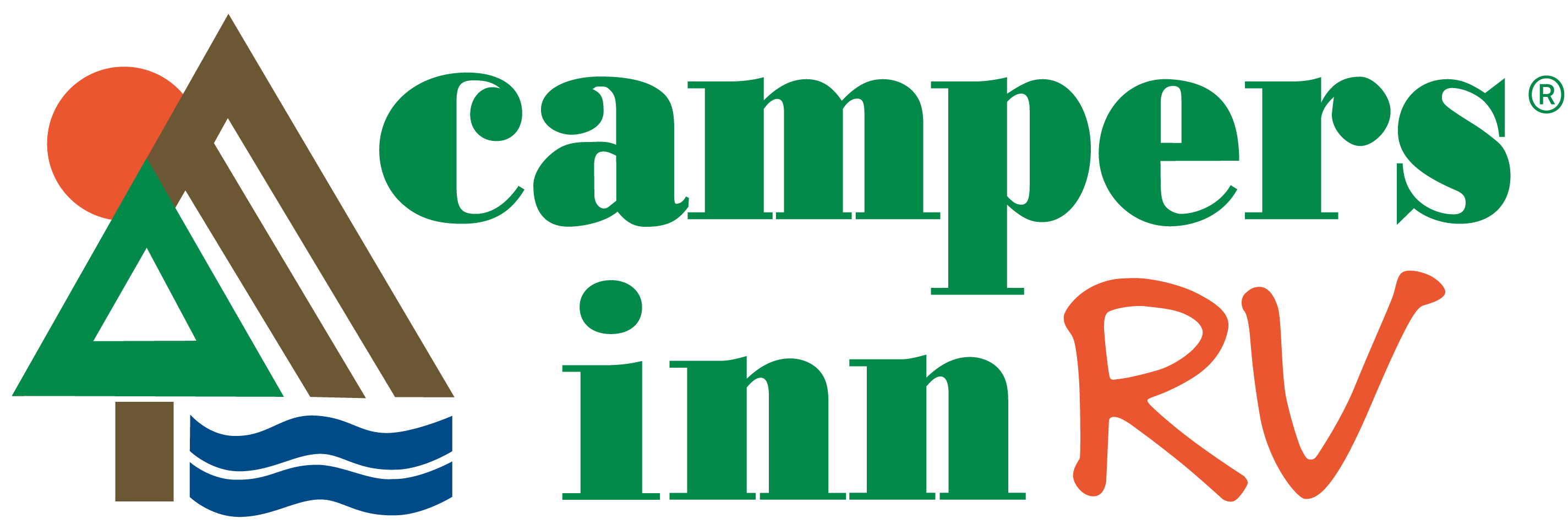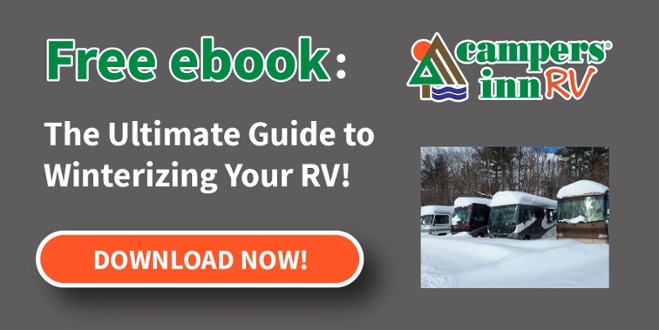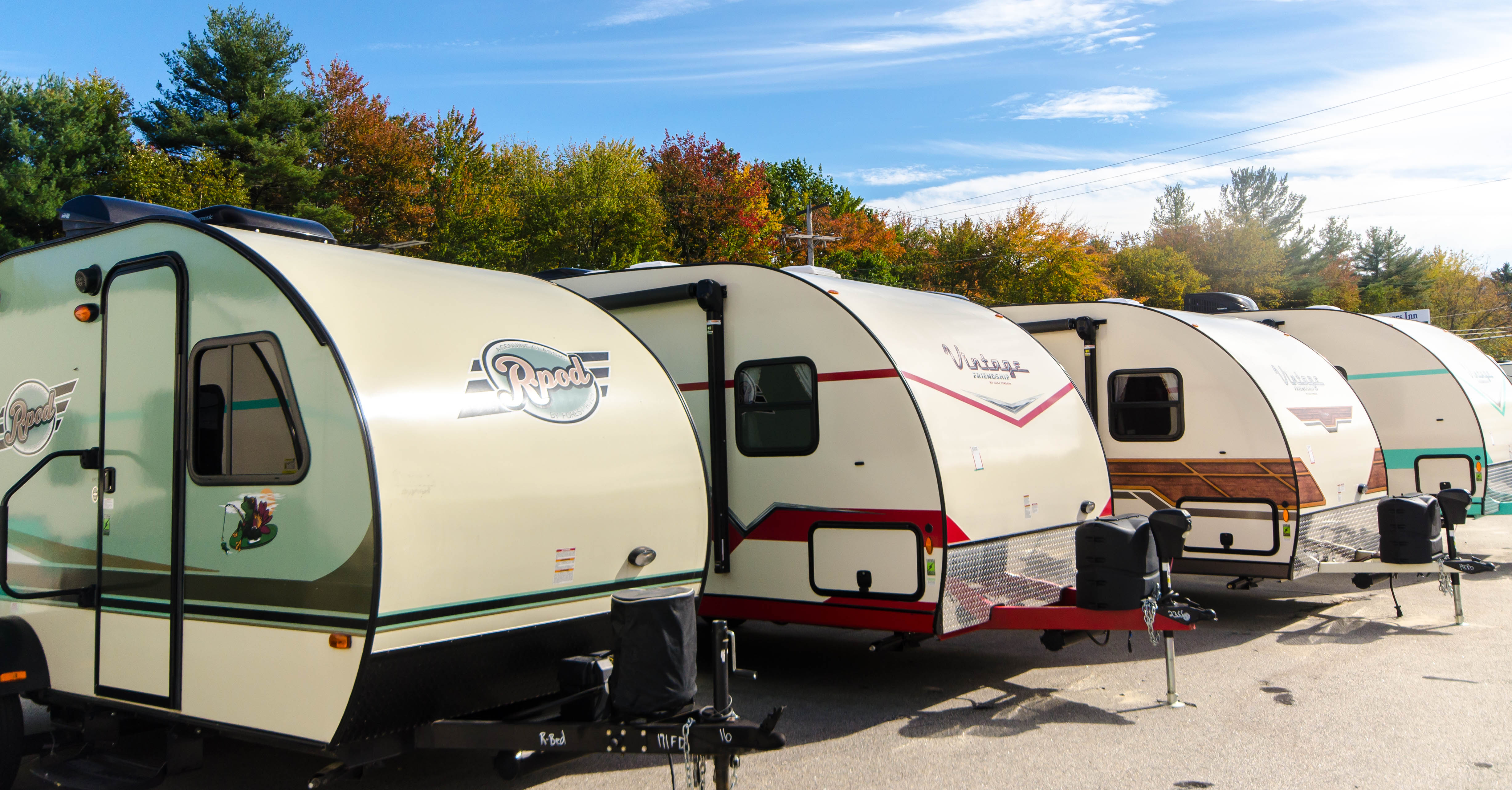
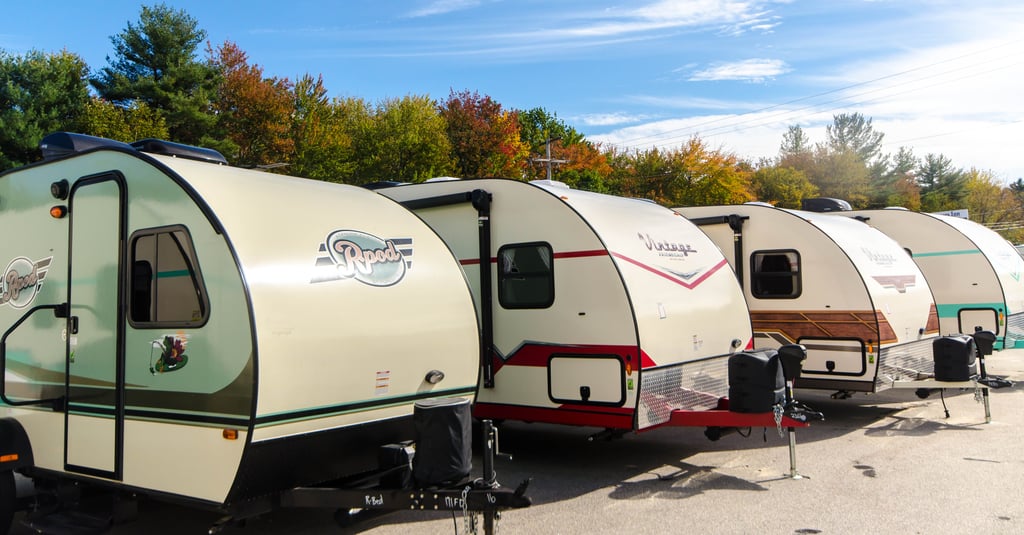
Once the RV season is over, owners start prepping their rigs for several months of storage. However, in many parts of the country, the offseason brings snow, ice and freezing temperatures that could cause damage while the RV waits for spring.
Before you lock up and cover your RV, ask yourself these 5 questions to make sure everything is clean, safe and protected.
Is my RV’s interior clean?
.jpg)
After a long summer of wet towels, muddy shoes and trail mix snacking, your RV might be a little messy and worse for wear.
Before you close it up, make sure to thoroughly wipe, wash and sweep the whole interior. Check under the beds and in each cabinet and closet. Remove linens, towels, blankets and anything else that needs to go in the washing machine.
Empty your fridge and freezer, and remember to prop the door open to avoid mold. Use a natural dehumidifier to absorb moisture, and place pest abatement to keep bugs and rodents away.
You’ll thank yourself next spring when you open up a pristine camper that’s ready to hit the road!
Related: 10 Must-Have Supplies to Keep Your RV Clean and Tidy
Is my roof in good shape?
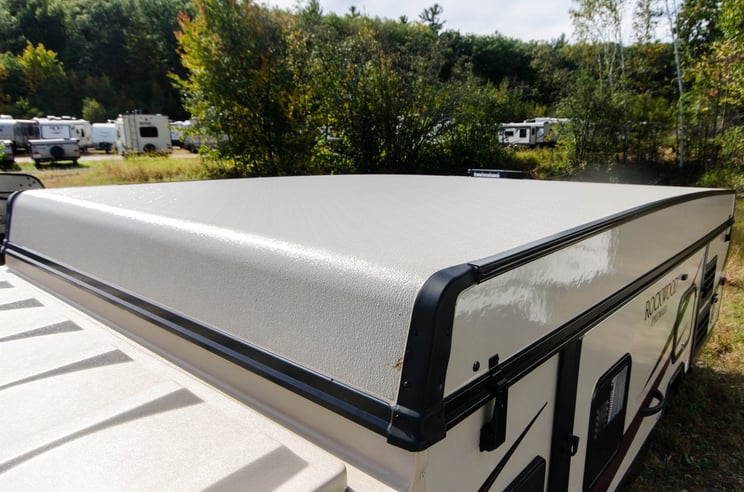
Maintaining your RV’s roof is essential to protecting your rig against snow, ice and rain. Head to your nearest RV parts supplier and purchase a roof cleaner that is appropriate for your RV’s roof material.
While you are cleaning, check for any cracks, dents or holes. If you find damage, make an appointment to repair it before you apply your cover.
Stay vigilant about clearing snow off your RV. You don’t want the snow’s weight or meltwater to cause any problems during the winter.
Are there any cracks in my RV’s seams and seals?
Water damage is a major issue for RV owners. When prepping your camper for winter, examine the full length of every seam and seal for cracks, gaps and tears. This includes roof seams, slide-outs and all windows inside and out.
Clear off all debris, including leaf litter, pine needles, pine tar, dirt and mud. Left unclean, this debris could prevent airtight seals and may let water seep in.
Is my water system winterized?
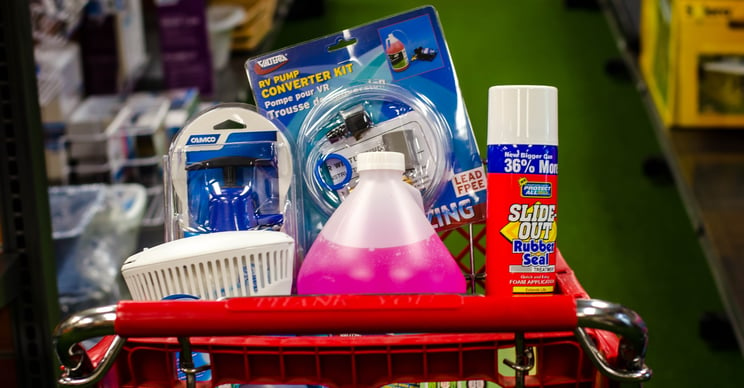
Your RV’s plumbing is susceptible to freezing temperatures if left untreated. Make sure to fully winterize the water system to avoid cracked, broken or burst pipes.
Winterizing involves draining all water from the system and replacing it with antifreeze. Your local service center should be able to perform a winterization easily and thoroughly. If you prefer a DIY approach, check out our free guide to Winterizing Your RV. It’s essential to check every faucet and appliance during the process, including the kitchen, the bathroom and any exterior water sources.
Do I have a good spot to store my RV?
Your RV is going to be hibernating for several months, so it’s important to find a safe place to store it. Many owners will rent a storage unit or space in a storage lot.
If you want to keep your RV at home, find somewhere with stable ground, such as a driveway, to prevent the risk of sinking. Watch out for branches or wires overhead that may fall during a storm, and make sure the RV is not in the path of snowplows, cars or other things that may inadvertently hit it.
Once your RV is inspected, cleaned and winterized, apply your cover securely. Don’t forget to check it periodically during the offseason to ensure it is still safe, protected and in good condition.
Related: Three Approaches to Storing Your RV this Winter
Are you a DIY type? Are you interested in winterizing your RV at home? Download our free ebook, The Ultimate Guide to Winterizing Your RV.
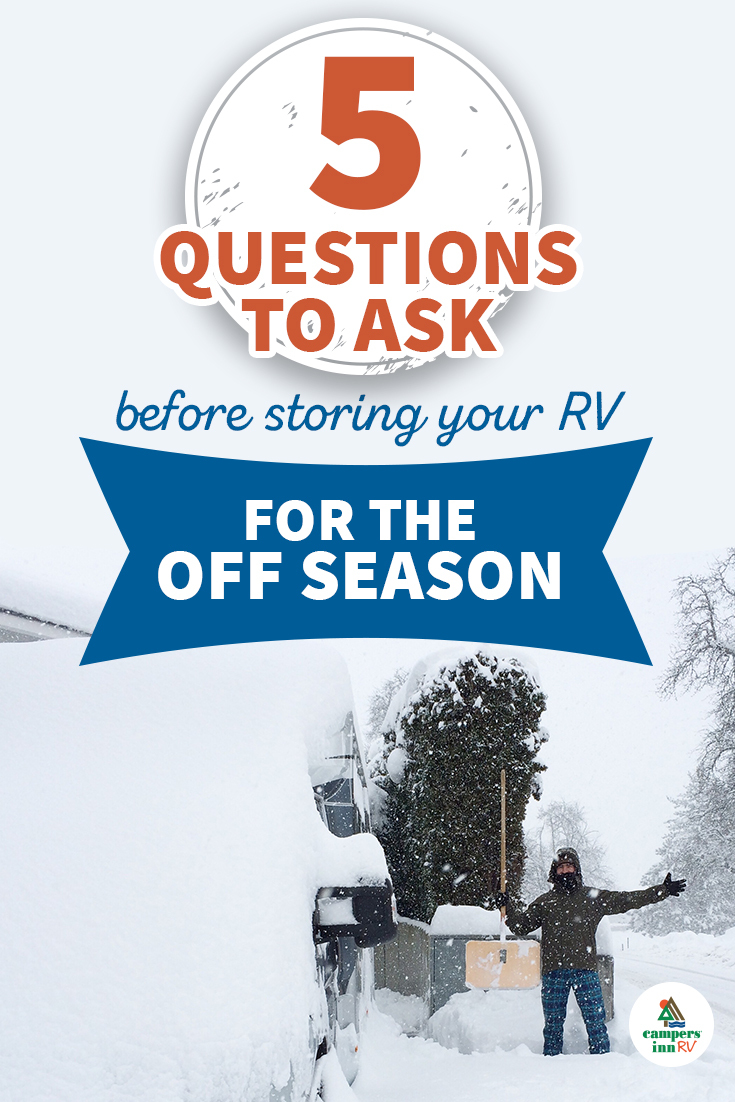
CAMPERS INN RV DOES NOT REPRESENT OR WARRANT THAT THE MATERIALS ON THIS PAGE ARE ACCURATE, COMPLETE, RELIABLE, CURRENT OR ERROR-FREE. CAMPERS INN RV IS NOT RESPONSIBLE FOR ANY DAMAGE OR HARM CAUSED BY USE OF MATERIALS OR INFORMATION PROVIDED HEREIN
